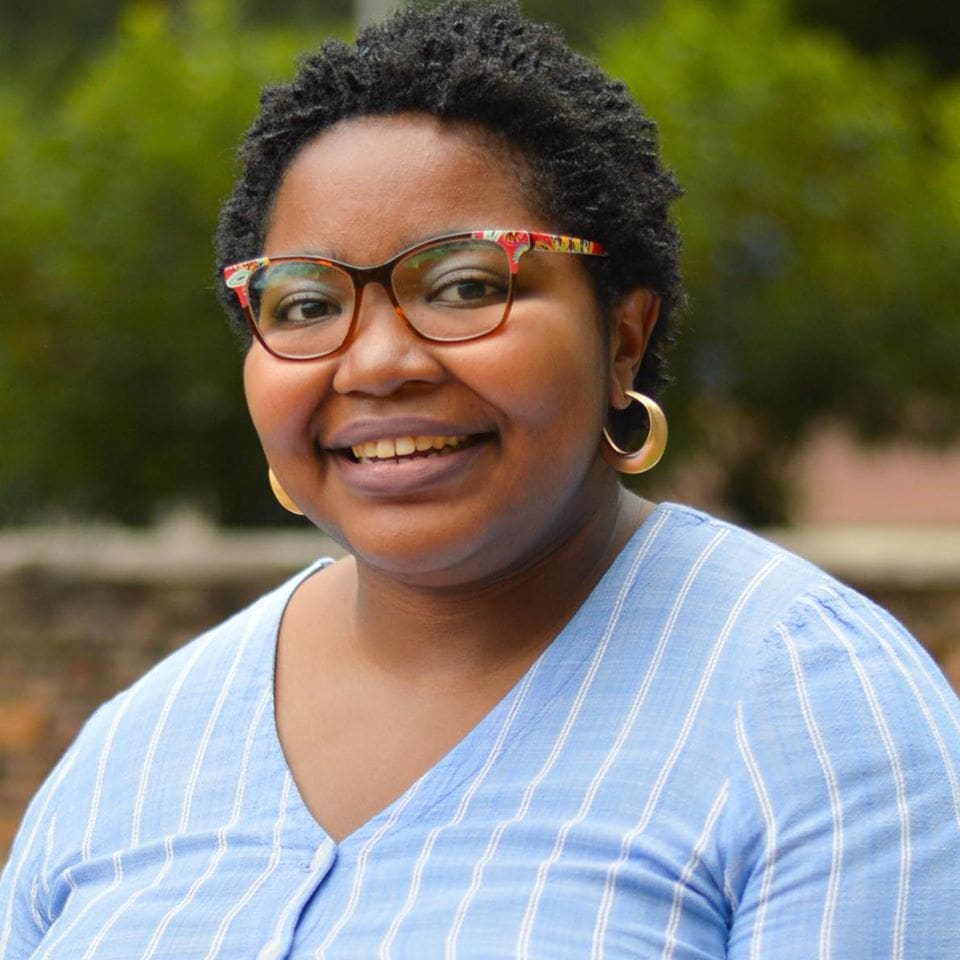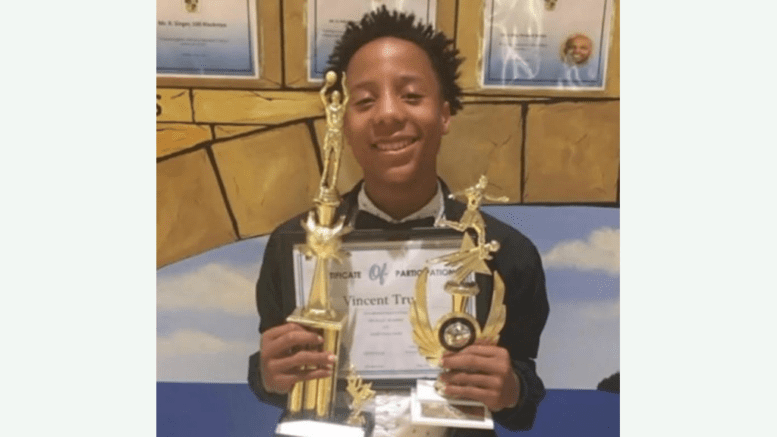After a Cobb County grand jury recommended no action be taken against a police officer for killing a Black teenager, the teen’s family attorneys told the Courier that their struggle for justice is not ending anytime soon.
Cobb County Police Officer Max Karneol killed 17-year-old Vincent Truitt last July.
On Thursday, Feb. 18, Cobb District Attorney Flynn Broady announced to the press that a grand jury he convened recommended that no action be taken against Karneol.
Broady said he does not intend to take any further action on the case.
Attorneys dispute grand jury and DA recommendation
The Truitt family attorneys Maria Banjo and Gerald Griggs said the decision by the DA and grand jury has brought additional hurt to Truitt’s family.
Furthermore, they criticized Broady’s conduct and handling of Truitt’s case.
“I’m shocked. I’m embarrassed. It’s sad,” Banjo said. “At the end of [Thursday’s announcement], Vincent’s stepfather had to carry Vincent’s mother on his shoulder out to their vehicle. She was that distraught. And that was a direct response to [Broady’s] mishandling of this family.”
Broady did not present murder charges, or charges of any kind, to the grand jury, Banjo said.
Rather, Broady presented evidence of what happened on the night Karneol shot Truitt, according to the grand jury finding released to the press.
Evidence presented included testimony from a Georgia Bureau of Investigation agent and footage of what happened the night of the killing.
Banjo said that the DA proceeded in a way not typical of her experience with grand juries.
“Typically, the prosecutor would decide which charges and what kind of legal theory they were going to move forward on,” Banjo said. “And they did not make any decision about any charges and they weren’t given the legal standard that needs to be proven for those charges. So the jury really didn’t have anything to consider as far as charges are concerned.”
The attorneys stated that in meetings Broady had with them and the Truitt family, Broady said he would pursue charges against Karneol, specifically: murder, possession of a firearm during the commission of a felony and aggravated assault, family attorney Gerald Griggs said.
“So I’m not quite sure where the change came and why it came,” Griggs said. “But I can state as an officer of the court he was very disingenuous with this family. And that’s the part that really upsets us. And it definitely upsets our client.”
The attorneys also said that Broady did not treat Truitt’s family as next of kin.
DA offices providing victims an advocate is pretty routine, Banjo said.
But according to her and Griggs, Broady did not do that for Truitt’s family.
“The fact that he failed to provide a victim advocate to be present to sit with our victims just demonstrates that they were never given the bare minimum consideration,” Banjo said.
Having a victim advocate would have provided Truitt’s family with more guidance and transparency as to what is happening in their family member’s case, she said.
The attorneys also stated that the DA’s office violated Georgia’s Marsy’s Law, also known as the Crime Victims’ Bill of Rights.
Banjo said the Truitt family was notified on Thursday that the grand jury was convening in an hour, which gave the family only a very short time to travel to the courthouse.
The attorneys also said that they and Truitt’s family were barred from the DA’s announcement last Thursday.
When they tried to enter the room, deputies told them that only the press were allowed in.
Banjo said this signified that Broady was “up to no good” that day.
Banjo and Griggs also pushed back against the laws the jury used to justify their decision.
The grand jury based their recommendation on O.C.G.A 16-3-20 and 17-4-20, which are Georgia laws that explain when deadly force is justified.
Under those codes, Truitt would have had to pose an immediate threat of serious bodily harm or death.
The now-public video of Truitt being killed shows Karneol shooting Truitt twice in the back as the teen was running away.
Griggs said that even if Truitt had a gun as Cobb PD says, the video demonstrates that Truitt’s killing was not justified because he was running away and did not point the weapon at Karneol.
Banjo criticized the usage of OCGA 17-4-20 because the law refers to suspected felons or those suspected of committing a felony.
At best, Truitt could have been charged with possession of a firearm by a minor, which is a misdemeanor, Banjo said.
“They need [Truitt] to be a felon in order for them to justify what this officer did,” she said.
The attorneys also said they were disappointed that the Cobb police and the DA released the tape of Truitt’s killing only after finding out Karneol was likely not to be charged.
They said the Cobb County Police Department and the DA have not been transparent throughout the Truitt case.
They pointed to the refusal of the DA and the police to release Karneol’s name until Thursday and said their calls to release the video were ignored after months of demands.
The DA’s office disputed some of the Truitt attorneys’ claims.
In an email to the Courier, the DA’s office said they presented the case to the grand jury under OCGA 15-12-71(b). Part of this code states:
“The grand jury, whenever deemed necessary by eight or more of its members or at the request of the district attorney, shall conduct a review of any incident in which a peace officer’s use of deadly force resulted in death or serious bodily injury to another.”
The DA’s office said that the family and attorneys were informed that if the grand jury recommended action against Karneol then Broady would present some sort of indictment to a different grand jury. The DA’s office said they told this to the family and attorneys in January.
The Cobb DA’s office also said they did provide the Truitt family with a victim advocate. They said it is typical for the office to provide every victim of a crime with an advocate.
“The head of our Victim-Witness Unit corresponded with the family via email, participated in two family meetings, and provided grief resources and counseling resources,” the DA’s Public Information Officer Kim Isaza wrote in an email to the Courier.
The office also said that Marsy’s Law does not require the office to notify the family of the grand jury hearings because those hearings are not open to the public.
They said they told the family the approximate date the DA would present to the grand jury and that on the day the case is presented, the DA’s office would tell the family immediately of the grand jury’s decision.
The DA’s office confirmed that the Truitt family and attorneys were barred from entering Thursday’s press conference, citing COVID-19 prevention measures.
“The news conference was invitation-only,” Isaza wrote. “For purposes of social distancing, it was limited to media outlets that provided prior notice of their attendance.”
Truitt family attorneys promise further action
Griggs and Banjo stated that Thursday’s announcement is not the end of Truitt’s case.
For one, Griggs said there will “definitely” be more demonstrations in honor of Truitt.
Additionally, the family is still pursuing their $50 million wrongful death lawsuit against the Cobb County government and police. They announced the lawsuit in a press conference last month.
Family attorneys have sent an open records request to Broady’s office since the case is closed. They want to review the case evidence.
The Truitt family and their attorneys want Karneol charged, convicted of murder, and sentenced to life in prison.
There is no statute of limitations for murder in Georgia. Since Karneol was not charged, he could still be convicted for killing Truitt, the attorneys said.
“[Karneol] can be charged with murder tomorrow, he can be charged with murder 10 years from now. We will continue to push for charges,” Griggs said.
Griggs said family attorneys are going to contact Georgia Attorney General Chris Carr for a review of the case.
They are also awaiting the arrival of the new United States Attorney for the Northern District of Georgia in the hope of pursuing federal civil rights violations charges against the officer and Cobb police.
Despite a heap of disappointments, Truitt’s family and attorneys say they remain determined.
“There’s a lot of avenues that are still available to us,” Griggs said.

Arielle Robinson is an undergrad at Kennesaw State University. She is the president of the university’s Society of Professional Journalists and an editor at the KSU Sentinel. She enjoys music, reading poetry and non-fiction books and collecting books and records.
